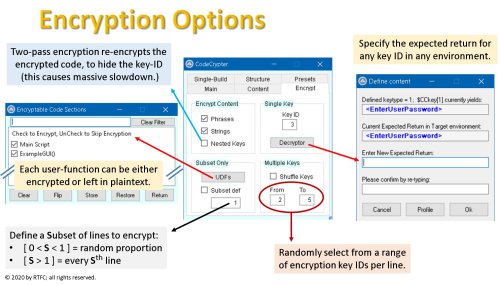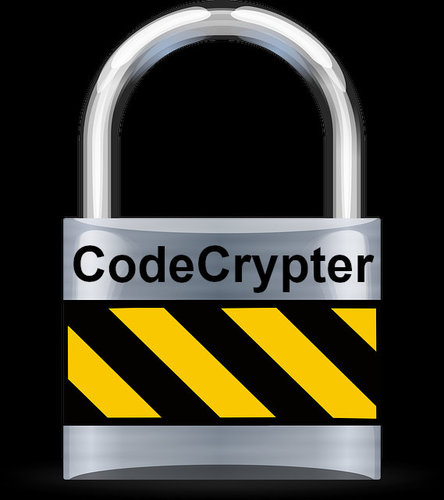About This File
The CodeScannerCrypterBundle (ca. 2.9 MB unzipped) contains the following UDFs and utilities:
- CodeScanner: analyse AutoIt script structure and content, identify potential issues, generate MCF data files
- CodeCrypter: front-end GUI for the MCF library, for script encryption (without storing the decryption key(s) in the script!)
- MetaCodeFile UDF (MCF library): for analysis and user-defined alterations of AutoIt script structure and content
- MCFinclude.au3: #include this UDF in any AutoIt script that you wish CodeCrypter to process
- CryptoNG, by TheXman; encryption UDF using Bcrypt dll calls (32/64-bit; various algorithms)
- StoreCCprofile.au3/readCSdatadump.au3/helloworld.au3: auxiliary utilities and example script
- HowToCodeCrypt.pdf: a simple guide in five steps
- CodeCrypterFAQ.pdf: questions and answers, partly based upon exchanges in the CodeCrypter thread.
- MetaCodeTutorial.pdf: the MCF engine explained; useful for encryption, GUI translation, code translation, and much more...
Please follow the links for additional information.
Edited by RTFC
What's New in Version 3.4
Released
-
CryptoNG by TheXman upgraded to v.1.9.3, and promoted to the sole encryption/decryption engine in this bundle; with many thanks to TheXman (Semper volens auxilium indeed) for their help and support in creating a CodeCrypter-compatible version of CryptoNG!

- Ward's AES UDF (x86 only) has been retired, with many thanks to the author for eight years of their UDF's solid service;
- CodeScanner now supports struct(ure) detection (stored as regular variables, but listed separately);
- CodeCrypter is now able to distinguish between (and encrypt) object properties (reading) and struct member access using dot notation;
- FAQ.pdf (slightly) updated and MetaCodeTutorial.pdf added to the bundle;
- HowToCodeCrypt.pdf extended with new tables to clarify key types (depending upon environment control and user trust) and the target's runtime decryption behaviour (depending upon Key Type versus prespecified Expected Return).









Recommended Comments
There are no comments to display.